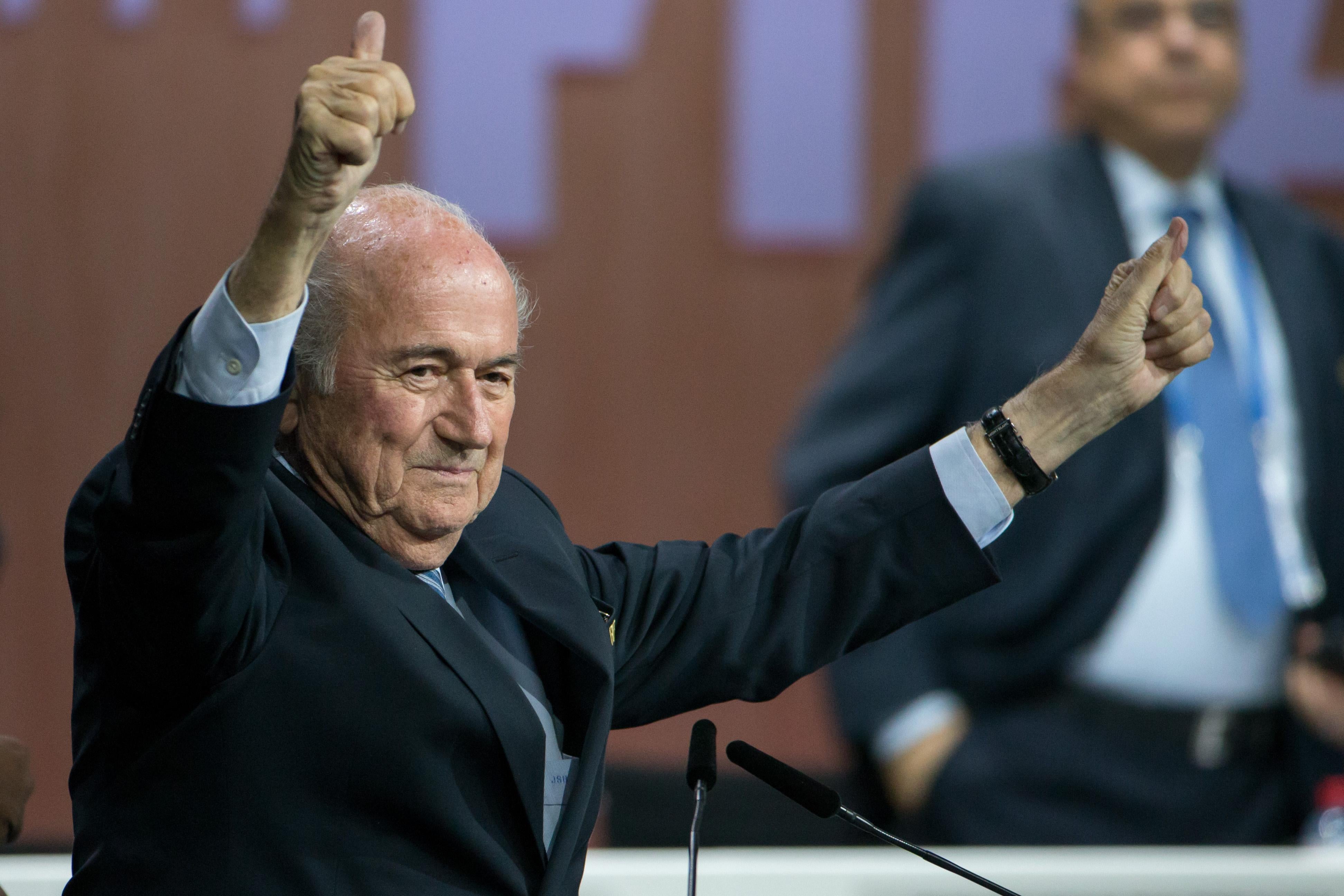It was a lot closer than we thought it would be a week ago, but in the end the result was as expected: four more years of Sepp Blatter.
In the first round of voting in FIFA’s presidential election in Zurich today, incumbent Sepp Blatter, needing a two-thirds majority to avoid a second round of voting and secure his fifth term, came out ahead of Jordanian Prince Ali Bin al-Hussein 133–73, but still seven votes short of the supermajority. The second round required just a simple majority and Ali withdrew, mercifully sparing us all another long and pointless vote.
The voting was done by secret ballot, but we know a bit about which candidate members were planning to support. UEFA, Europe’s 54-member soccer federation, was backing Prince Ali, though a few members—Russia, of course, and most likely Spain—broke ranks to support Blatter. The U.S. was on Team Ali, as were Canada and Australia. There were also reports on the day of voting that South America’s 10-member federation CONMEBOL was switching its support to Ali.
But ultimately, that wasn’t enough to overcome Blatter’s overwhelming support in Africa, Asia—despite the fact that Ali is FIFA’s vice president for the region—Central America, and the Caribbean. (The head of the Dominican Republic’s football association compared the FIFA head to Jesus, Nelson Mandela, and Winston Churchill at a meeting last month.) As thoroughly corrupted as Blatter’s FIFA appears to, well, everyone, he’s clearly been good to many of the members.
Blatter was characteristically confident before the vote, telling the delegates in his statement, “You know me already, I don’t need to introduce myself to you. You know who you’re dealing with. I also know I can count on you. We need to recover our good name. We will start tomorrow morning with this goal in mind.”
So what happens now? Swiss authorities have informed Blatter that he could face questioning within weeks as part of its inquiry into vote-rigging in the awarding of World Cups to Russia and Qatar. And U.S. authorities will now be submitting formal extradition requests for most of the officials arrested earlier this week. The fallout of the scandal is also now spreading to Brazil, where the police and congress have now launched inquiries into money laundering and tax evasion by soccer officials. The former president of the Brazilian football federation was among those arrested and his successor fled Switzerland before today’s vote, apparently panicked by today’s vote.
The organization itself seems at risk of imploding. UEFA head Michel Platini, who had called on Blatter to resign, said this morning that his members, which include soccer powerhouses like Germany and Spain, would consider pulling out of FIFA if Blatter were re-elected. The head of the England Football Association, Greg Dyke, also said that the country would consider boycotting the 2018 World Cup in Russia if Blatter stays and would consult with other UEFA members about doing the same.
Blatter may have survived the vote—and it would be a mistake to underestimate his long-term survival skills—but the troubles seem likely to continue for the world’s most popular sport.
